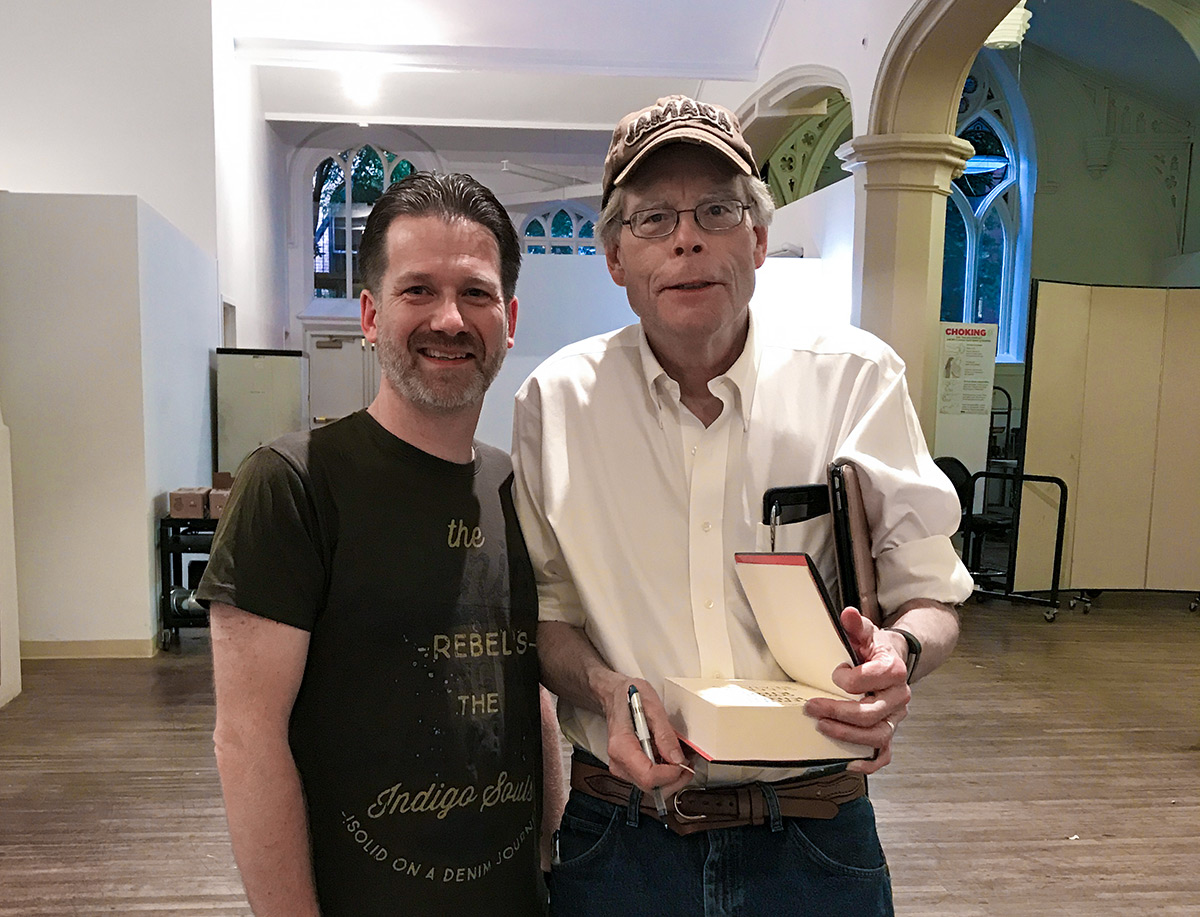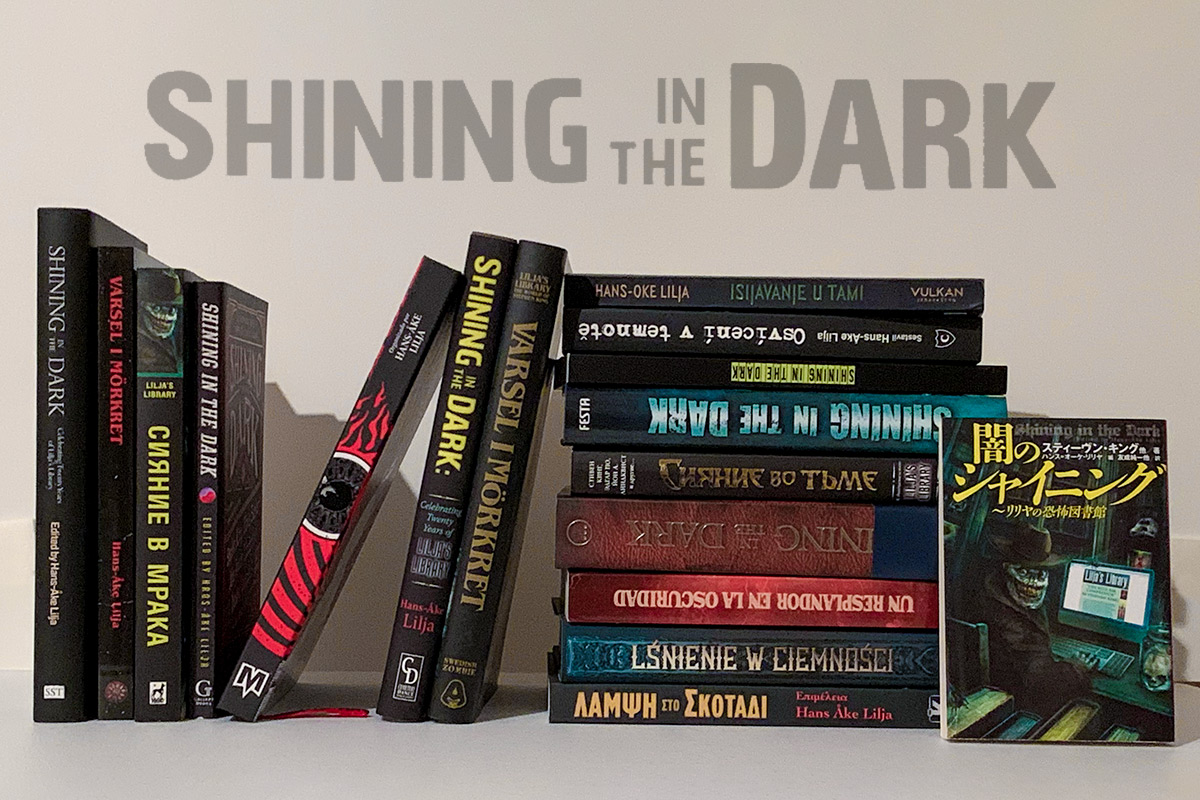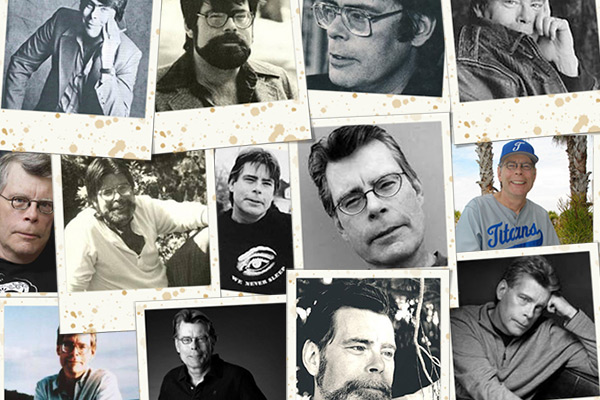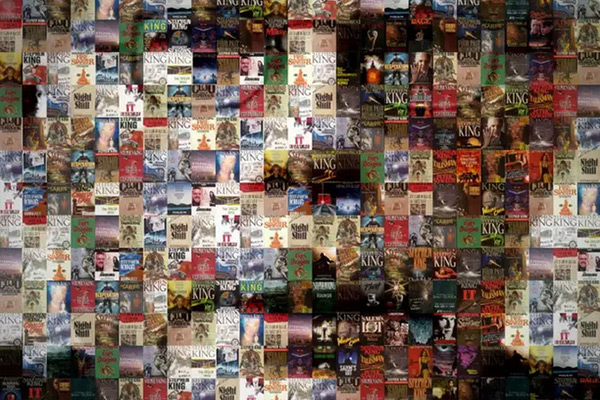Mick Garris
Posted: May 22, 2006
_
 Lilja: What made you want to turn Desperation into a movie?
Lilja: What made you want to turn Desperation into a movie?Mick Garris: I love the "desert noir" or, more accurately, "desert blanc" stories: Red Rock West, the novels of James M. Cain, etc. And King's book was like a horror desert noir, which blends a lot of my favorite tropes of storytelling. It's a very human story, quite emotional, and terrifically challenging. We first planned on making it as a feature film while we were shooting The Shining miniseries; a couple of producers came out to the location in Colorado to discuss it with us, but, though it had been set up as a feature at New Line, they never really got behind it.
I love the themes: so much of it is reminiscent of The Stand, although, of course, it's a very different story. But shooting in a dead town, with no one around for miles, the ensemble cast, all the location and road work, it was very similar.
Lilja: The cast is very good. Was it you that did the casting?
Mick Garris: I'm very, very happy with the cast, for the most part. There are more actors in Desperation whom I had worked with in movies before than any other movie I've ever made. This was my fourth film with Matt Frewer (the fifth was Chocolate, for Masters of Horror), my third with Henry Thomas, second with Charles Durning, third with Steven Weber, second with Ron Perlman. Most of those actors were my first choice.
The network and I did not always agree; they fought me on Ron Perlman, and a couple other actors. They forced us to offer it to Clancy Brown, who is a wonderful actor, but I'm glad he passed on it, for whatever reasons he had. I was planning on Perlman in 1996, when we first talked about making it. He's quite wonderful in it, and brings to it elements no other actor could have.
Lilja: Where there some actors/actresses that you had in mind for the start?
Mick Garris: Weber, Frewer, Thomas and Perlman were all my first choices. It's great to work with actors with whom you already have a personal and professional relationship. It's a lot of work, and any shorthand you can get going is very valuable. And if you're going to work under these very trying circumstances, it's even better if you have reliable, enjoyable personalities surrounding you on the set. Particularly on difficult locations.
My great regreat is that we were not able to have my wife Cynthia play David's mother. It just couldn't work out.
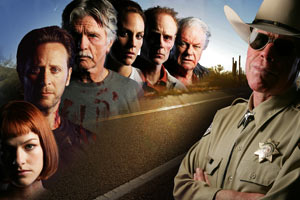 Lilja: Why do you think ABC agreed to let you do it so violent and graphic? Don’t they usually censor movies like Desperation?
Lilja: Why do you think ABC agreed to let you do it so violent and graphic? Don’t they usually censor movies like Desperation?Mick Garris: Well, with the success they have with the King adaptations, they feel the audience knows what they're in for. I honestly believe that, had they been released theatrically, The Stand, The Shining miniseries, and Desperation would all have been rated R in the States.
We really pushed the envelope with all the King adaptations on ABC. One of the edicts from the network on The Stand was "no corpses with open eyes." Well, in the very opening credits, the camera moves right into an extreme closeup of a dead woman's clouded over eyes. And the last hour of The Shining broke all the rules ever made for network TV.
Lilja: It’s extremely true to the book, was that a goal for you?
Mick Garris: Absolutely... as long as the story is well-told. I know as well as anyone that books and movies aren't the same thing, and shouldn't necessarily be. Movies are external, and books are internal. My work has been to try to externalize the internal in a cinematic way. Riding the Bullet was a real experiment in that direction. But King's stories are very visual, cinematic, visceral. There are a few things missing from the book--how could there not be?--but I think only the most anal retentive of the readers will really notice.
Lilja: It also has a very strong religious theme, what are your thoughts on that? Was it hard to translate to the TV screen?
Mick Garris: It was difficult for me in a number of ways: one, I didn't want David to come off too pious, and holier-than-thou. Secondly, I am not a religious man at all. But, as in The Stand, my job was to tell the story as if it were the truth. You know, there aren't ancient, half-cat, half-human Sleepwalkers, but that doesn't mean I can't tell their story.
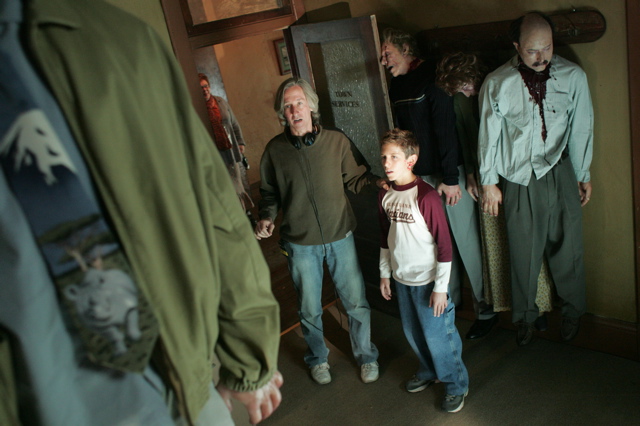
Lilja: As I said earlier, the movie is very graphical. Was there a specific scene that was difficult to shoot?
Mick Garris: Honestly, there wasn't a day that wasn't difficult on this film. Everything that's difficult about filmmaking, in a technical sense, is represented here in spades: children, animals, driving scenes, makeup effects, physical effects, special effects, difficult, uncomfortable locations and extremely uncooperative weather. This was every single day. And on top of that, we had to shoot six-day weeks, which, I have since found, almost nobody does anymore.
Lilja: You also had a fire on the set of Desperation. Do you know what started it and how did it affect the shooting?”
Mick Garris: Yes, there was an unfortunate accident on the set of the Rattlesnake Mine, which we built on temporary sound stages we constructed at the Tucson Convention Center. There were about thirty extras in the enclosed set, and a couple of stuntmen. During a cave-in that we staged, a light was broken, either by the fake falling rock or by someone accidentally kicking it. Apparently, that caused the dust to ignite, and made for a fireball. The scariest thing by far that I've ever been through. Two stuntmen received some burns, but no one was seriously hurt. It happened about 25 feet in front of me, and we were all shaking for days afterward.
Lilja: You have had Desperation done for quite some time. Has it been frustrating that it’s taken so long for it to air?
Mick Garris: Actually, they were always planning it for the May sweeps. May is the most important sweeps period, as it's when the local stations around the company set their advertising rates. We thought they might want to accelerate post-production to get it on last May (we ultimately finished it in June), but that would have been a disaster, as the network had blown all of the year's promotional budget launching Lost and Desperate Housewives in the preceding January. For a while, they talked about putting it on for February or November sweeps, but all of the other King films I've done for ABC have run in May. It's flattering that they wanted to save it for the most important period.
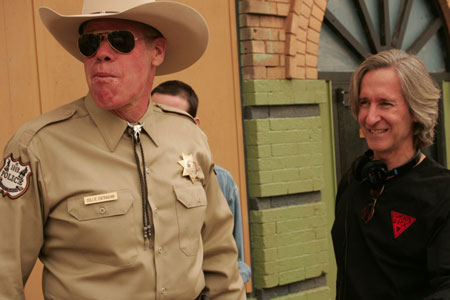
Lilja: Now that Desperation is done, do you want to continue with The Regulators, maybe with the same cast? Anything connected to King in your future?
Mick Garris: We're talking about some other possibilities, but The Regulators is not one of them. I think Desperation is the far more cinematic novel of the two, ironically, since The Regulators began life as a script years ago for Sam Peckinpah. As much as I like The Regulators, the movie within it is not as apparent to me. Again, not all books are movies.
Lilja: Any last word before the fans watches your movie tomorrow?
Mick Garris: Only that I hope they have a good time with it. Nobody respects King's work more than the people who worked on this, and it's something we're all very proud of.

